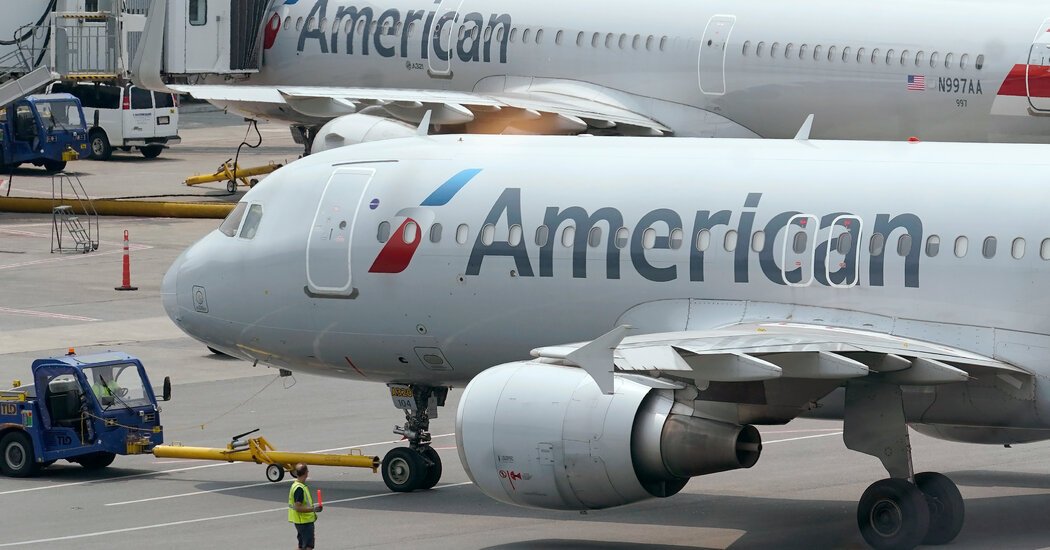
In an interview, Robin Hayes, the chief executive of JetBlue, said that argument was “plain wrong.” He said the alliance with American was allowing JetBlue to significantly increase the number of flights to New York airports. “JetBlue has never been able to add so many new flights in such a short space of time to New York,” he said.
Business & Economy
Sept. 21, 2021, 5:48 p.m. ET
Some airline analysts said the situation in New York airports made the alliance necessary for JetBlue. Because the number of flights serving the airports is strictly limited, JetBlue could not simply enter the market and offer new flights. Instead, it had to use slots that belong to American, something made possible by the alliance. At the same time, the airlines said, they would use bigger planes for their flights and add new routes, leading to a larger supply of seats, and perhaps lower fares.
“When you increase the number of seats in the market, holding demand constant, you’d expect prices to fall,” said Gary Leff, who writes the travel blog Viewfromthewing.com.
But the Justice Department complaint says American has an upper hand in the alliance and could use its established position in New York’s airports to reward or punish JetBlue, dampening competition in the process.
“JetBlue will be beholden to its larger partner, resulting in a wide-ranging diminution in competition in an industry in which competition is already in critically short supply,” the Justice Department argues.
When asked if the alliance had already led to lower fares, Mr. Hayes, the JetBlue chief executive, said, “It’s obviously early,” but added, “As we announce those routes, you will see fares lower than they were before JetBlue came on.”
The Justice Department has said it wants to reinvigorate antitrust enforcement, in keeping with the Biden administration’s more aggressive posture toward big mergers.



